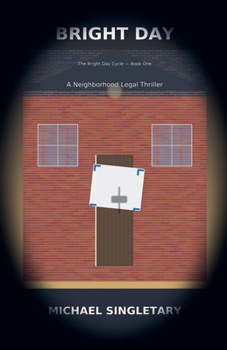Bright Day
When a routine county records check declares his home doesn't exist, Michael Salinger is pulled into a shadow war where neighborhoods become battlefields and policy hides in code. With a binder, a whiteboard "Ladder," and a handful of allies-Juno, a relentless lawyer; Rafi, a data savant; and Teresa, who believes boring wins-he fights back against corporate euphemisms, vendor intimidation, and blackout "maintenance windows" designed to erase access.
What begins as a quiet title dispute escalates into injunctions, subpoenas, and culture clashes in courtrooms and on porches. Drones circle, SUVs idle, and anonymous blogs smear, but the team counters with receipts, chalk marks on sidewalks, and the stubborn courage of neighbors refusing to be erased.
Through tense hearings, midnight filings, and a consent decree that reshapes county practice, Bright Day reveals how ordinary streets can force daylight into systems built for shadows. At stake isn't just a house-it's whether quiet persistence can make policy honest.
The book closes with culture beginning to shift: judges tape plain-English advisories to the record, counties adopt transparency footnotes, and a teenager's chalk becomes a movement. Daylight hurts-and heals.





